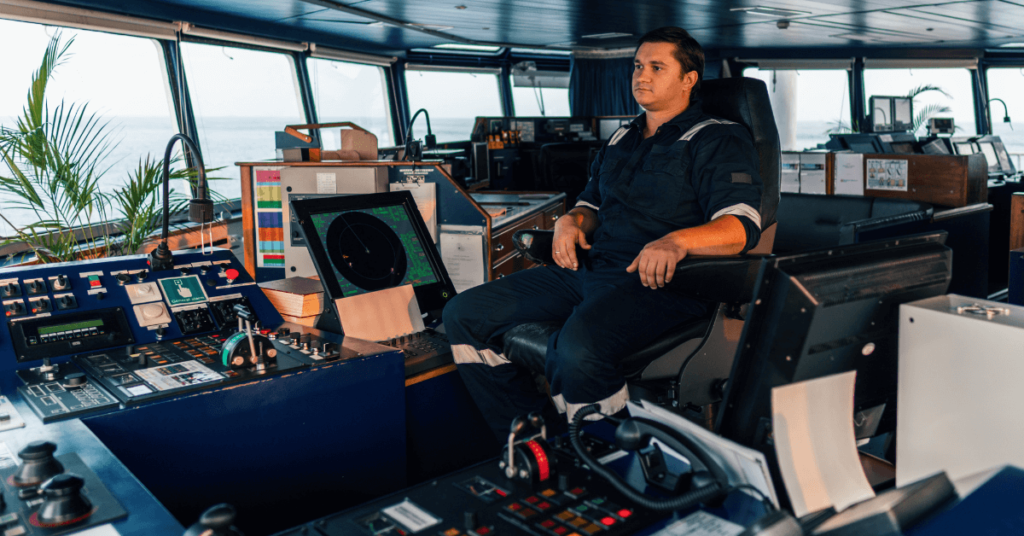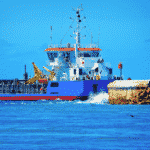7 Important Points To Consider While Filling Out Engine Room Log Book
As a part of engine room watchkeeping routine, marine engineers are required to keep a log of all important machinery parameters such as pressure,temperatures, revolutions etc. in the engine room log book.
This daily record -keeping book is a complete log of engine room readings which are compared with the design and trial conditions at regular intervals of time to analyze the performance of engine room machinery and systems. Additionally, the log book parameters are also checked during surveys and investigations related to any kind of accident in the engine room.
A watchkeeping engineer is required to fill out the log book details at the end of every watch. This is a mandatory task which should be carried out properly without fudging important parameters (Engineers when busy with maintenance work or due to sheer laziness, often fill out the log-book based on their assumption or by just copying data from previous watches. This is dangerous practice which must be avoided.)
Mentioned below are ten important points which marine engineers must remember while filling up engine room log book.
1. Allot Sufficient Time for Taking Parameters
About 1 hour before the watch gets over, the watchkeeping engineer should take a thorough round of the engine room, noting down all important parameters such as pressure, temperatures, engine room tank levels etc. Engineers often take rounds at the very end of the watch, carrying out the process in haste, overlooking several important machinery and missing several important parameters. Eventually, the log book is also filled up in haste with assumed parameters.
Sufficient time should thus be allotted for not only taking the readings but also for properly filling up the log book. This ensure that the log book is ready by the time the relieving officer comes in and takes a look at the important parameters before starting his watch. All equipment required for taking readings must also be carried along while taking the round so that no important parameter is missed.
2. Always Take Data During Steady State Conditions
It is always advisable to take the readings when the engine room and all machinery systems are in steady state conditions without continuously changing parameters. For e.g. if the readings are taken during manoeuvring, the recorded values will be not of much help due to fluctuating conditions. Such data is not useful to note down (unless there is a breakdown or accident) and inevitably reflects changes in the condition or capability of crucial engine components which are monitored during condition monitoring.
3. Note Down and Highlight Important Events, Accidents, Breakdowns and Near Misses
Any important event taking place in the engine room should be noted down in the log book. Unusual changes in the behavior of any particular machinery, sudden increase or decrease of parameters, accidents, near misses, or breakdown of any equipment should be noted down and highlighted in the log book. This is to ensure that the relieving officer is aware of such events and he gives additional attention to the mentioned issue. In case of major problem, don’t forget to note down the date and time of the event in the log book.
The data from the log books are often used for insurance claims in case of accidents, during safety meetings as references and making safety plans, and as proof of accidents in case of casualty.

4. Note Down Correct Tank Levels and Transfer Details
Filling up of logbook will require filling out important tank level figures. In case the engineer is required to carry out transfers between any tanks, the same should be noted down in the log book with the final parameters. The names of the tanks should also be mentioned.
In case the transfer process is going on when watch is over, inform about the same to the incoming officer and note the levels of the tanks at the end of your watch in the log book.
5. Keep the Log Book Clean and Neat
Engineers working in the engine room must ensure that the log book is kept neat and clean without oil smudges, over writing , and ink marks. The data in the log book are extremely important records which should be properly visible for future references.
In order to prevent the log book from getting torn or spoilt, use a proper cover or case for protection.
6. Use Only Pen And Sign Wrong Readings
Use only ballpoint pen to fill the log book. Ink pens or pencil should not be used as these are official records which should be prevented from getting tampered or spoilt.
If wrong readings have been written by mistake, they should be crossed out (strike out with one line) and correct readings must be written beside them along with the sign of the authorized watch-keeping officer. Moreover, the duty engineer is also required to sign at the end after filling the log book, which is later signed by the chief engineer and captain after verifying the data.
7. Only the Watchkeeping Engineers Must Fill the Log Book
It is the duty of the watchkeeping engineers to fill out and sign the log book at the end of every watch. It’s a common practice on several ships to allot this work to junior engineers or engine cadets, who often miss important parameters or fill the details in haste with several errors. An experienced engineer or senior official can easily point out any kind of abnormal parameters or mistakes in the log book and the duty engineer will then have to provide an explanation for the same.
Additional Point to Consider:
-For marine engines with an Engine International Air Pollution Prevention (EIAPP) Certificate that are subject to the Engine Parameter Check Method as part of periodical IAPP Surveys, all changes to an engine’s NOx influencing components, including like-for-like replacements, are to be documented in the Record Book of Engine Parameters.
Lastly, it is to note that a log book is not just for filling records but also to be used as a reference to study previous data of machinery parameters and to compare them with the current data, for understanding the condition of machinery systems and early detection of any major fault.
You may also like to read – What is Chain Register On Board Ships?

About Author
Raunek Kantharia is a marine engineer turned maritime writer and entrepreneur. After a brief stint at the sea, he founded Marine Insight in 2010. Apart from managing Marine Insight, he also writes for a number of maritime magazines and websites.
Do you have info to share with us ? Suggest a correction
Latest Shipboard Guidelines Articles You Would Like:
Subscribe To Our Newsletters
By subscribing, you agree to our Privacy Policy and may receive occasional deal communications; you can unsubscribe anytime.
















good
good job my dear frend.
Very nice this points about watchkeeping…
awesome
Keep it up. Good work
GOOD JOB, THANK U VERY MUCH
good work
Most important are to log running hours of ALL machinery to be able to keep up with PMS. Also don,t forget the Oil record book and keep it up to date. If you are caught in any port without being able to account where your fuel and oils are you are in trouble.
Hello,
“This is a MANDATORY task which should be carried out properly” – who says that it is a mandatory task, where is it written anything about the engine room logbook?
Thanks.
@Peter: Merchant Shipping (Official Log Book and List of Crew) Regulations